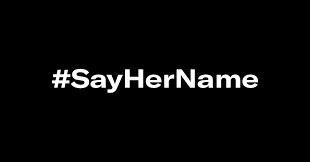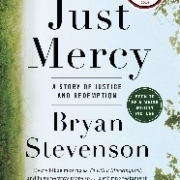TEACH IN;
Inspiration for meaningful online teaching on issues of race and gender during a global pandemic
Friday September 4, 2020
Presented by the DWC Teaching & Pedagogy Committee
Please contact Shelly Clevenger (sxc167@shsu.edu) for questions and/or concerns!
SESSION 1 – Click here to view this session!
Teaching about Race, Gender, and Diversity; Building our Resource Tool Kits
9 am EST/8am CST/6am PST
Dr. Lisa Carter
(Florida Southern College)
In this session, we will cover and discuss the importance of creating an inclusive environment in the classroom and discuss the importance of diverse perspectives, with specific focus on race and gender. Additionally, the facilitator will share resources and examples of class activities and projects that promote diversity in course goals. By the end of the session, participants will leave with ideas for revising their current assignments to incorporate and support greater emphasis on diversity.
SESSION 2 – Click here to view this session!
Trauma Informed Teaching & Changing Rape Culture
10 am EST/9 am CST/7 am PST
Dr. Christina DeJong
(Michigan State University)
In the midst of the Larry Nassar sexual assault case at MSU, a group of faculty decided that changing the toxic rape culture at MSU would only come from grassroots efforts. We created TELLIT@MSU, Teaching and Learning for Institutional Transformation. Our goal is to change the culture at our institution at the classroom level through trauma-informed and survivor-focused teaching. In this session, Dr. Christina DeJong will discuss the creation of this organization and the different topics addressed throughout the TELLIT series of workshops at MSU. She will be interested in hearing from participants about translating these issues to the online environment in light of the COVID-19 pandemic.
SESSION 3 – Click here to view this session!
Connecting the issue of violence against women and race through active learning assignments
11 EST/10am CST/8 am PST
SESSION 4 – Click here to view this session!
Teaching Criminology & Criminal Justice through a Queer Lens
1pm EST/12pm CST/10 am PST
Dr. Emily Lenning
(Fayetteville State University)
This session will offer examples of resources, assignments, and activities that can be used to incorporate LGBTQ issues into a variety of different required and elective criminal justice courses. Emily will share best practices for addressing Queer issues and offer several “modules” that can easily be incorporated into online or face-to-face classes.
SESSION 5 – Click here to view this session!
Teaching the Impact of Implicit Association;
From Freshmen to Seniors
2pm EST/1 pm CST/11 am PST
Dr. Amanda K. Cox
(Ohio University)
&
Dr. Holly Ningard
(Ohio University)
Understanding the role implicit associations’ play in reproducing systemic inequality is essential for criminology students, who benefit from being taught the concept in multiple ways throughout their degrees. This virtual presentation begins with discussion of an online assignment using the Implicit Association Test and other materials to allow Introduction to Sociology students to learn about and reflect on implicit associations relating to race. Discussion continues with examples for teaching advanced students about the impact of implicit association in the field of policing. The two discussions demonstrate how foundational concepts in introductory level courses are built from and applied in higher level courses. The presenters will facilitate an open conversation with participants.
SESSION 6 – Click here to view this session!
Engaging Students with Infographic Assignments
3pm EST/2pm CST/12pm PST
Dr. Breanna Bopre
(Wichita State University)
&
Dr. Gillian Pinchevsky
(University of Nevada Las Vegas)
This session will introduce participants to infographic assignments and how they can be used effectively as inclusive alternatives to traditional research assignments (i.e., papers). We will share our infographic assignment instructions and criteria, insight on implementation, and student examples from Women and Crime courses.
SESSION 7 – Click here to view this session!
Teaching Students to Transgress Against Racial, Gender, and Sexual Boundaries: Education as Freedom and Liberatory Praxis
4pm EST/3pm CST/1pm PST
Dr. Eryn Nicole O’Neal (Sam Houston State University)
&
Dr. Brittany E. Hayes (University of Cincinnati)
Critical criminological and victimological teaching approaches posit that sexism, misogyny, racism, homophobia, transphobia, and other systems of oppression are endemic in society, and that educators must remain committed to social justice and praxis. Similarly, teaching to transgress moves beyond goals of student literacy and the development of professional skills, to promote a reflective and critical view of social realities (like those listed above). Drawing from bell hooks’ work on liberatory education and practice, we will discuss strategies for educating students as a practice of freedom–focusing specifically on teaching students to transgress beyond racial, sexual, and gender boundaries.
This includes discussing: theory as praxis, theory in action and activism, our responsibilities as educators to advocate for social justice on campus and beyond, and the importance of infusing hope into our classrooms. Overall, this pedagogical approach requires a re-examination of knowledge production and the knowledge base, linking theory to practice, centering student empowerment and multiculturalism, and teaching passionately to creating a more meaningful learning environment. Attendees will be encouraged to participate in an open dialog about whether these critical pedagogical strategies are at work in their own classrooms and ways they can be incorporated. Attendees will receive a (short) reading list on critical and transgressive teaching approaches to facilitate their journey in educating as a practice of freedom.
SESSION 8 – Click here to view this session!
Lights, Camera, Action! Incorporating Role Playing and Media in both Race and Gender Online Courses
5pm EST/4 pm CST/2 pm PST
Dr. Stacie Merken
(Indiana University-South Bend)
This session will provide ways in which role playing and media can be incorporated in both race and gender courses for teaching 100% online, hybrid-distance, or distance-synchronous. Assignments will be presented for faculty to incorporate gender and race role play as well as using media to expose students to detect various biases and myths surrounding race and gender. Information about grading rubrics for these assignments will be addressed as well. The presenter also will include time for discussion, Q&A, and for individuals to share their assignments, experiences, and best practices for teaching race and gender courses.










